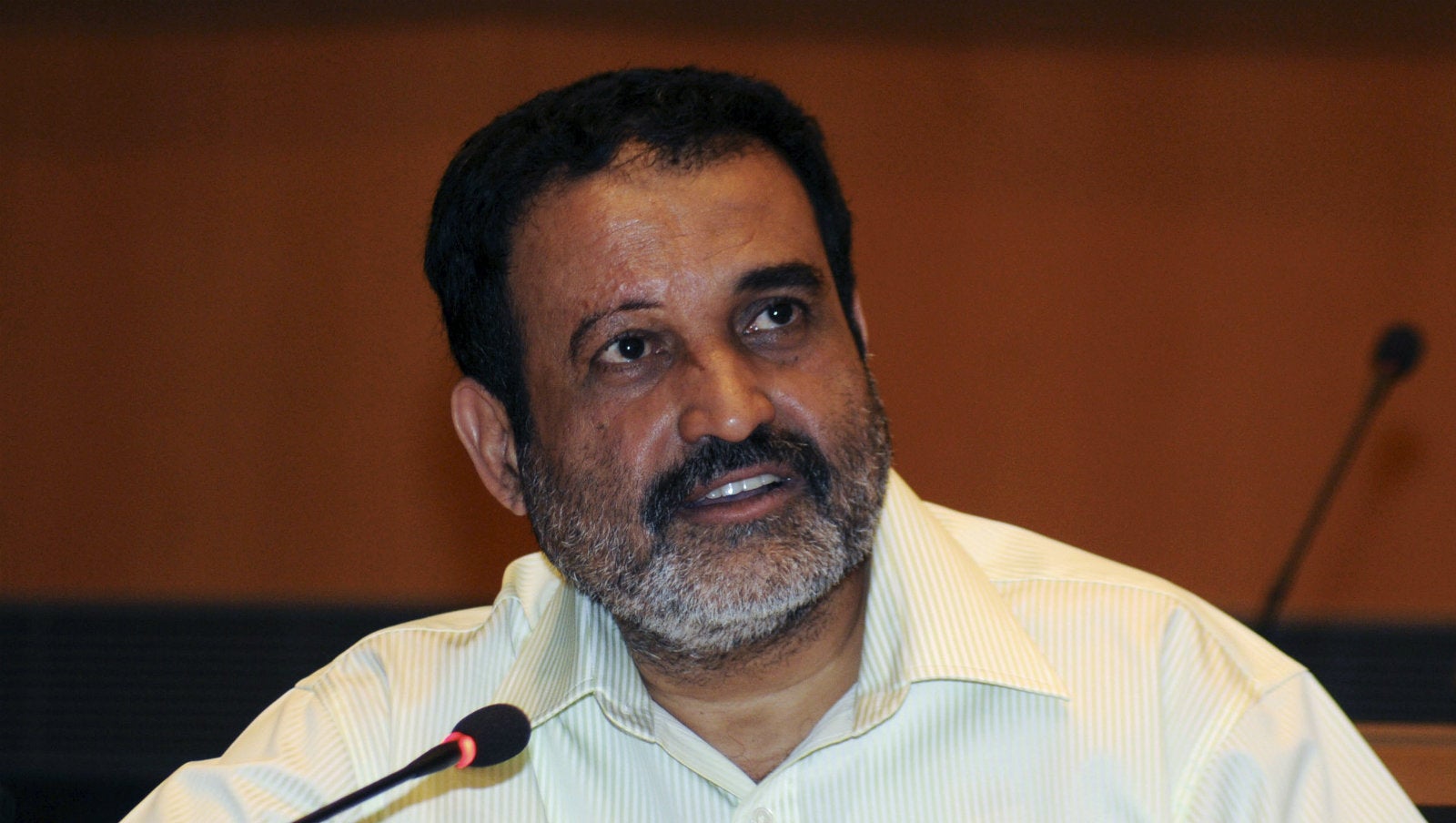A top angel investor’s message to India’s troubled startups: Keep calm and carry on
Indian startups aren’t exactly having a ball. Funding is drying up, talent is scarce, and profitability is being questioned. But Mohandas Pai, one of India’s most prolific angel investors last year, isn’t particularly bothered.


Indian startups aren’t exactly having a ball. Funding is drying up, talent is scarce, and profitability is being questioned. But Mohandas Pai, one of India’s most prolific angel investors last year, isn’t particularly bothered.
“Startups are high-risk ventures. They will fail, it is OK,” Pai argued. “The show goes on.”
The Infosys veteran, who served as the IT firm’s chief financial officer, made nine investments in 2015, according to Singapore-based DealStreetAsia. These included news portal YourStory, tax information portal Taxsutra, and Ressy, a Pune-based restaurant discounts startup.
A chartered accountant, Pai is often outspoken on social media. In an interview with Quartz, he was characteristically blunt while talking about the criticism that Indian startups face today. Here are some edited excerpts:
Q: Are we scrutinising mistakes made by startups too much?
MP: Look, failure and success is a part of life. And both are a part of the ecosystem. Startups are high-risk ventures. They will fail, it is OK. There is no need to focus excessively on success or failure. The show goes on. In startups too, like the other parts of the economy, where there is open competition, valuation gets ahead of value creation and there is euphoria. Then there is a failure, because there is a bubble. And valuation goes behind value creation and the market comes to balance. This is an ongoing cycle.
Q: So why then is valuation given all the attention and importance?
MP: Valuation attracts attention because people feel that someone has made huge money. It is a very natural thing. Why does glamour attract people into films? Why don’t people look at the heart of a person rather than the physical appearance? These are things that happen all the time, so that is perfectly fine.
Q: What are the real challenges for startups today in India?
MP: The real challenge for a startup in this country is building a real business. Reaching the consumers, expanding, and accessing capital are some challenges that are going to remain. Last year only 1,200 out of some 5,000 startups got funding. The remaining are bootstrapping or putting their own money. Many of them will shut down.
Q: It is often said that Indian startups lack innovation, and they are heavily influenced by ideas in the West. Do you think they lack original ideas?
MP: I have lived through the IT industry where people called us ‘cyber coolies’, they abused us and said you aren’t doing business but only doing cheap labour. You can’t build a $110-billion global industry based on cheap labour. People don’t understand what it is to build global businesses. Innovation can be in processes, business models and other areas, too. If you look at all businesses globally, many of them are the same. What is so great about them? What is great about the retail business, say Walmart? It is just a shop. But Walmart is successful because it has built a large sustainable business, and (is) efficiently structured and run.
So I think we must get over this thing that everything is a copy. These are said by people with no consequence, and most of them are people who have never achieved anything. I would take criticism from somebody who has become a great entrepreneur, who knows the difficulties of being an entrepreneur. I have been getting abused in the IT industry for the last 20 years: “Oh you haven’t built a great product. You haven’t built a Microsoft”…but the people who criticised haven’t achieved anything in their life.
Q: There is a belief that the Indian Institute of Technology (IIT) tag is important when it comes to funding in the startup world. Is that true?
MP: Education and skill are very important. It gives you backing and a network. In any country, the top institutions have a unique filtering and these students graduate and form networks. That becomes easy. So it is OK. It isn’t that the country is run by the IITs.
Q: What do you look for in startups when entrepreneurs approach you with a business plan?
MP: Passion, energy, and hope. We only look at whether the business is built on an idea that is sustainable and can be scaled up. (We see) if there is a unique differentiation. Then we see whether the team has got the passion, energy and drive to work hard and make it happen. Then we look at what kind of funding is required. I invest based on what I like and what I feel is appealing to me. I am still investing and some investments are close to friction.
Q: So what are some emerging areas for startups other than e-commerce?
MP: There is going to be innovation in many sectors. There is going to be ed-tech, fintech, and health-tech.